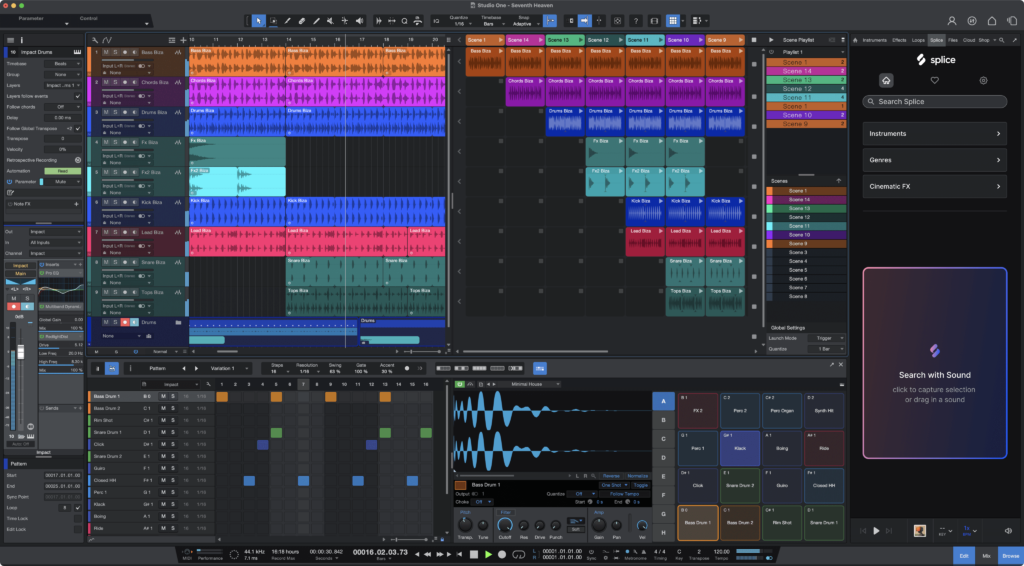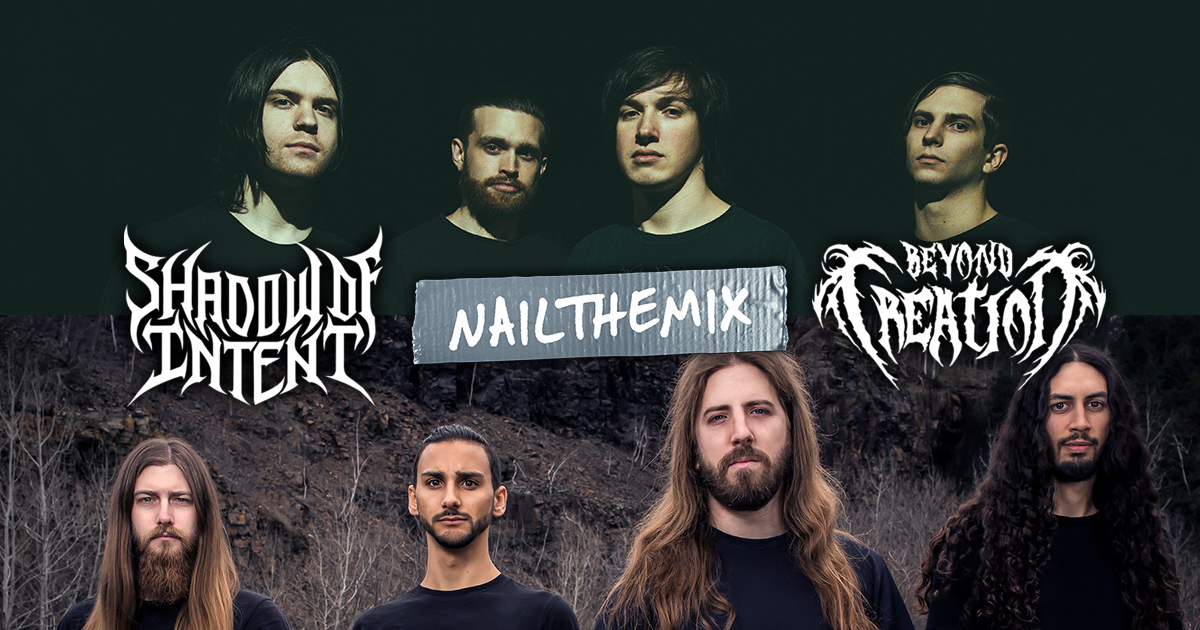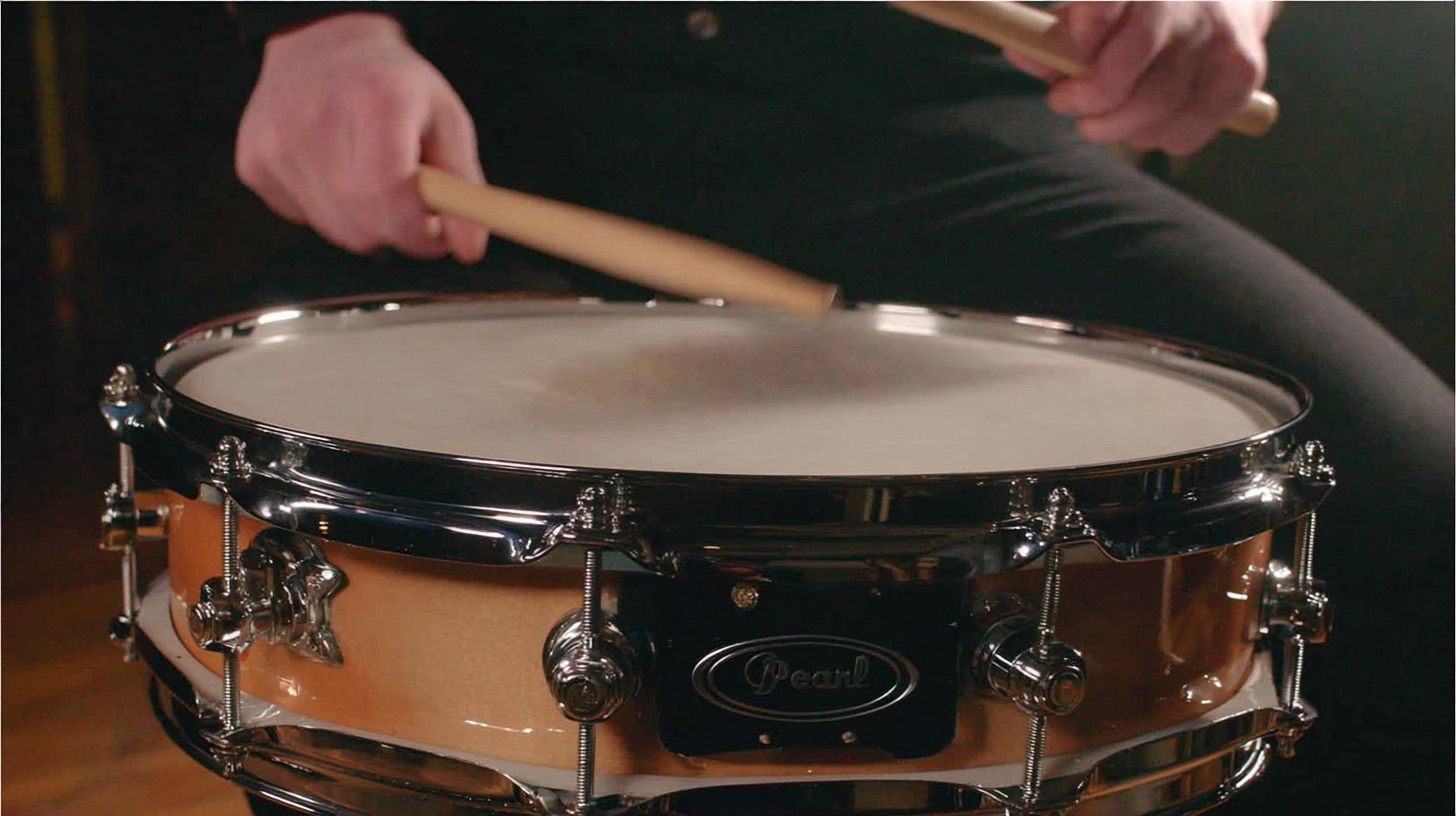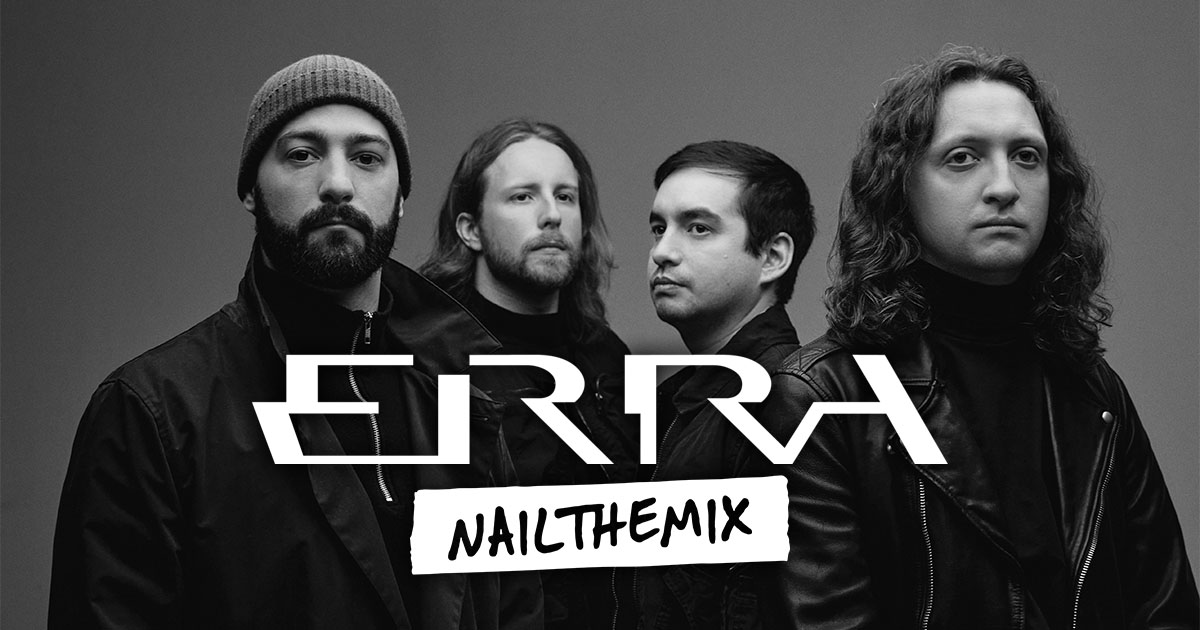
How to Mix Rock Music: Why Your DAW Choice Matters
Nail The Mix Staff
So you want to know how to mix rock music. You’ve got the riffs, the drum parts are programmed, and you’re ready to turn those raw tracks into a polished, professional-sounding monster, which is a process that involves both mixing and mastering. But before you even think about reaching for an EQ or compressor, there’s a foundational choice you need to make that will shape your entire workflow: your Digital Audio Workstation (DAW).
The first question everyone asks is, “Does it even matter which DAW I use?” The answer is yes… and no.
On one hand, modern DAWs are so powerful that you can technically make a killer record in any of them. But on the other hand, each one has distinct strengths and weaknesses. They’re built with different workflows in mind, and choosing one that fights you every step of the way is a recipe for frustration.
Our advice? Before you commit, try a few. Don’t just grab the one your buddy uses. Get your hands dirty, see what clicks, and make a deliberate choice. Because once you’re deep into a platform, switching is a massive pain.
Let’s break down the major players in the world of rock and metal production so you can find the right tool for the job.
The Titans of Rock: Pro Tools vs. Cubase
In the pro rock and metal scene, two DAWs have historically dominated the landscape. They are the workhorses you’ll find in world-class studios, and for good reason.
Pro Tools: The Industry Standard
If you walk into almost any major studio in the US, you’ll find Pro Tools. It’s been the standard for so long that its workflow is deeply ingrained in the industry.
Why It Rips for Rock:
- Unmatched Audio Editing: At its core, Pro Tools was designed to replicate an analog recording console and tape machine. Its audio editing workflow is second to none. For metal producers who spend hours doing surgical edits on drums and quad-tracked guitars, features like Beat Detective are legendary for a reason, allowing for the kind of advanced drum editing that heavy mixes demand.
- Studio Compatibility: Being the industry standard means you can take your session to almost any professional studio and they’ll be able to open it. Collaboration is seamless.
- Rock-Solid Support: Every plugin developer, from Waves to Slate Digital, makes sure their tools are compatible with Pro Tools (in the AAX format). You’ll never be left out.
Where It Falls Short:
- MIDI & Composition: Pro Tools is not built for loop-based or MIDI-heavy composition. Writing with virtual instruments can feel clunky and unintuitive compared to other DAWs. It lacks the advanced sequencing and time-stretching features of its competitors, making it a poor choice for electronic or hip-hop-influenced rock.
Cubase: The European Powerhouse
More common in Europe but gaining serious traction in the US, Cubase is a beast of a DAW that has been around since the Atari ST days. Steinberg, its creator, literally invented the VST plugin format.
Why It Rips for Rock:
- The Best of Both Worlds: Cubase is a true all-rounder. It boasts incredibly deep and powerful tools for recording and editing digital audio, putting it on par with Pro Tools. But it also has a fluid and feature-rich environment for MIDI composition and loop-based writing.
- Killer Workflow: Many producers find its workflow to be incredibly fast and flexible, whether they’re tracking a full band or using it for precise metal guitar editing.
- Stability & Support: Steinberg has been in the game forever. Cubase is rock-solid, widely supported, and isn’t going anywhere.
Where It Falls Short:
- Honestly, it doesn’t have many glaring weaknesses for a rock producer. It does everything you need it to do, and does it well. The main reason you might choose Pro Tools over it is for that “industry standard” compatibility.
Other Popular Choices for Rock & Metal Producers
Beyond the big two, a few other DAWs have carved out dedicated followings in the rock and metal community.
Logic Pro: The Mac-Only Contender
Logic is Apple’s flagship DAW and is an incredibly powerful and affordable option… if you’re in the Apple ecosystem.
Why It Rips for Rock:
- Great Value: It comes packed with a massive library of high-quality virtual instruments, synths, and effects for a one-time price.
- Strong All-Rounder: Like Cubase, it’s very capable with both audio and MIDI, making it great for writing, recording, and mixing.
Where It Falls Short:
- Mac Only: This is the big one. If you use Windows or collaborate with anyone who does, Logic is a non-starter.
- The Editing Workflow: While you can do precise audio editing in Logic, it’s widely considered to be less efficient and intuitive than Pro Tools or Cubase, especially for complex drum editing. We’ve seen producers track and mix in Logic but export the drums to Pro Tools just to use Beat Detective. That’s a clunky workaround most people want to avoid.
Reaper: The Underdog Champion
Reaper has become a massive favorite in the home studio rock and metal scene, establishing itself as a true powerhouse for metal mixes.
Why It Rips for Rock:
- Deep Audio Functionality: Don’t let the low price fool you. Reaper can do anything Pro Tools or Cubase can do when it comes to recording, editing, and mixing audio. Once you’ve got your tracks recorded, you’ll still need to use all the fundamental tools, like dialing in the perfect metal compression settings to make your drums punch.
- Insanely Customizable: If you’re a tinkerer, Reaper is your playground. You can customize menus, create macros, and even use scripts to automate complex tasks.
- Generous Trial & Price: Reaper’s fully-functional free trial is legendary and has converted countless producers who tried it and never left. The license itself is also extremely affordable.
Where It Falls Short:
- The Lone Wolf Factor: While its user community is passionate, you won’t find Reaper in many commercial studios. If you plan on collaborating or taking projects elsewhere, be prepared to bounce stems constantly.
DAWs to Think Twice About for Heavy Rock
Some DAWs are wildly popular but are built for workflows that don’t align well with producing and mixing multitrack rock music.
Ableton Live & FL Studio
These two are absolute powerhouses for electronic music, hip-hop, and pop. Ableton’s Session View and warping capabilities are revolutionary for live performance and sample manipulation. FL Studio’s step sequencer and piano roll make getting a beat going faster than any other DAW.
But for a traditional rock workflow? Their strengths become weaknesses. Their interfaces are optimized for MIDI, loops, and samples, not for recording and comping 24 tracks of live drums or surgically editing quad-tracked guitars. In all the years of Nail the Mix, we’ve only had one producer mix a session in Ableton. It’s possible, but it’s not what it’s built for.

The New Kids: Studio One & Bitwig
These are modern, well-designed DAWs that learned from the mistakes of their predecessors. They are fast, stable, and have some incredible features. You can absolutely make a killer metal record in either one.
The only real drawback is their smaller market share. This means a smaller community for support and potential friction when collaborating with others who will almost certainly be on a different platform.
Key Factors When Making Your Choice
As you weigh your options, keep these three things in mind.
1. Pricing & Tiers
Pro Tools and Cubase offer different versions at different price points. Look carefully at the track limits, included plugins, and features. Don’t pay for a top-tier version you don’t need, but don’t handicap yourself with a “lite” version that you’ll outgrow in a month. Also, consider if you prefer a one-time purchase (Cubase, Logic) or a subscription (Pro Tools).

100+ Insanely Detailed Mixing Tutorials
We leave absolutely nothing out, showing you every single step
2. Plugin Support (VST vs. AU vs. AAX)
There are three main plugin formats: VST (the most common), AU (Apple’s format for Logic), and AAX (for Pro Tools). While major plugin companies support all formats, a lot of incredible freeware and indie plugins (like some of the best impulse response loaders) are only available as Windows VSTs. If you want access to that entire ecosystem, a VST-compatible DAW on Windows gives you the most options, though it’s important to focus on the VST plugins that are truly vital rather than getting lost in endless options.
3. Workflow, Workflow, Workflow
This is the most important factor. How does the DAW feel to you? Does arranging tracks, editing audio, and automating parameters feel intuitive or like a chore? This is where getting your hands on a few demos is crucial. Once you find a DAW that lets you focus on the creative side of things—like applying killer EQ strategies for modern metal—you’ve found your match.
The Bottom Line: Stop Arguing, Start Mixing
At the end of the day, arguing about the best DAW for metal online is a waste of time. Pro Tools, Cubase, Logic, and Reaper are all 100% viable choices for making professional-sounding rock and metal. They will all get the job done. There are producers on Nail The Mix who have used all of them to create world-class mixes.
The tool is just a tool. The real magic comes from knowing how to use it.
Instead of getting lost in forum debates, invest that time in learning the techniques that matter. Watching a pro dial in a guitar tone, smash a drum bus, and automate a vocal to perfection is where the real learning happens. Nail The Mix lets you be a fly on the wall for exactly that, giving you the multitracks from massive bands and letting you watch the original producer mix the song from scratch in the very DAWs we’ve talked about here.
If you’re ready to stop worrying about the gear and start focusing on the skills that will actually transform your mixes, we can show you how the pros do it.
Get a new set of multi-tracks every month from a world-class artist, a livestream with the producer who mixed it, 100+ tutorials, our exclusive plugins and more
Get Started for $1



